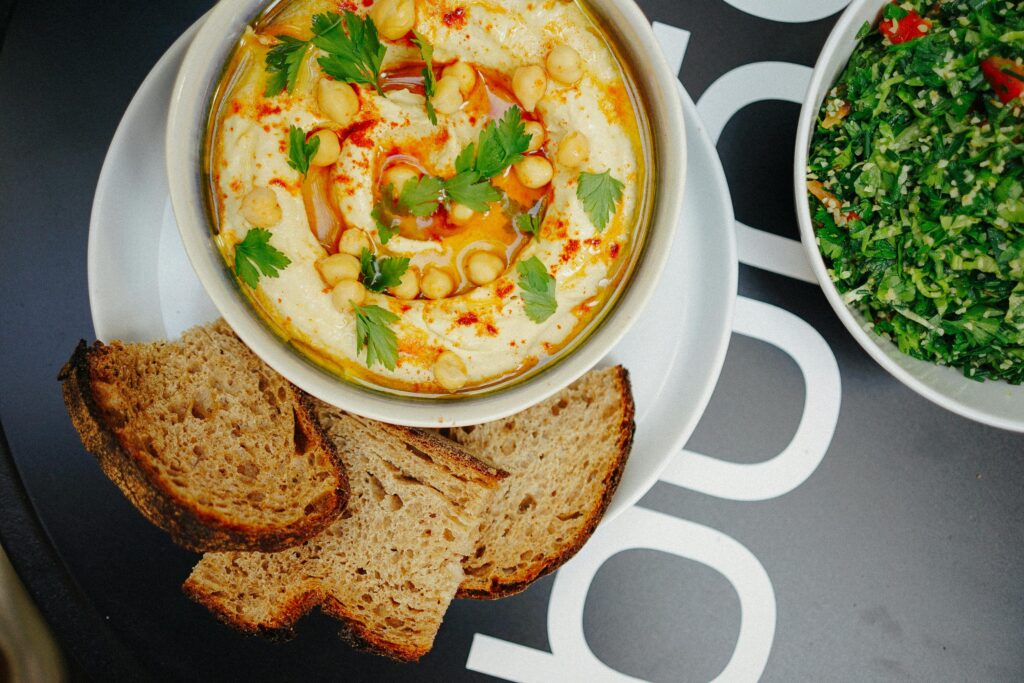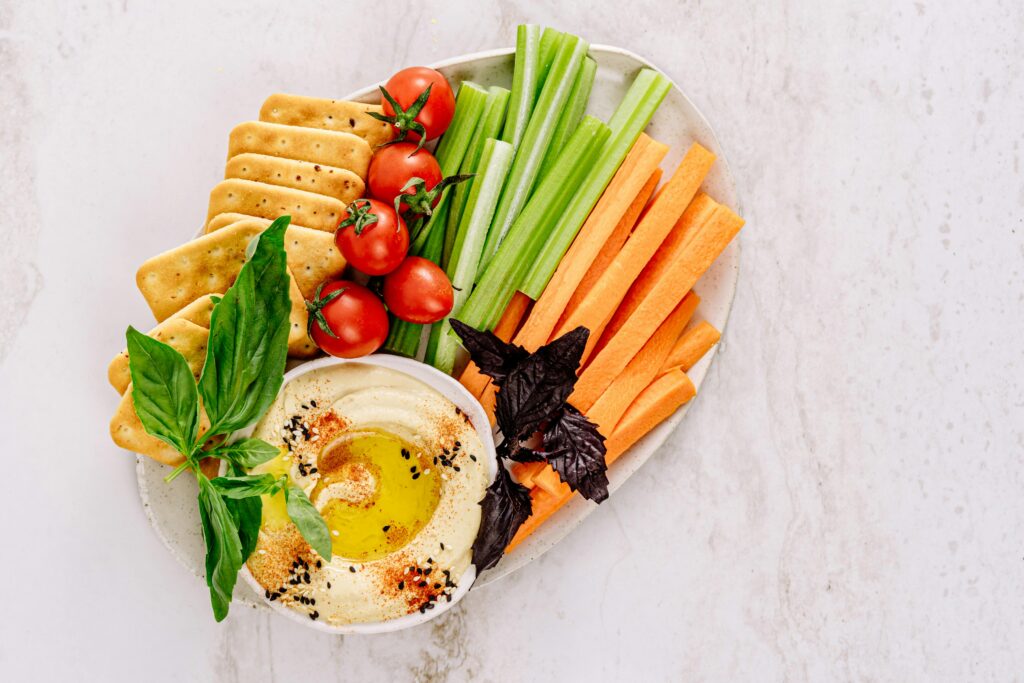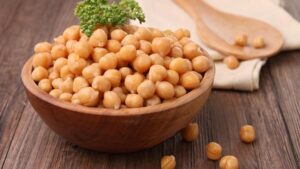What is hummus?

Hummus is a creamy spread or dip made primarily from cooked, mashed chickpeas (also known as garbanzo beans) blended with tahini (a paste made from sesame seeds), lemon juice, garlic, olive oil, and salt. It is a staple in Middle Eastern cuisine and is known for its rich, nutty flavor and smooth texture.
Hummus is often served with pita bread, vegetables, or used as a spread in sandwiches and wraps. It is popular for its nutritional benefits, being high in protein, fiber, and healthy fats. Additionally, it is naturally vegan and gluten-free, making it a versatile option for various dietary preferences. Hummus, a popular Middle Eastern dip made from chickpeas, tahini (sesame paste), olive oil, lemon juice, and garlic, offers several health benefits:
1. Nutrient-Rich
- High in Protein: Chickpeas, the main ingredient in hummus, are a good source of plant-based protein, making hummus a great option for vegetarians and vegans.
- Rich in Fiber: Hummus contains a good amount of dietary fiber, which supports digestive health and helps regulate blood sugar levels.
- Packed with Vitamins and Minerals: Hummus is rich in essential nutrients such as folate, iron, magnesium, phosphorus, and B vitamins.
2. Supports Heart Healthy
- Healthy Fats: Made with olive oil, hummus contains monounsaturated fats that can help reduce bad cholesterol levels (LDL) and lower the risk of heart disease.
- Low in Saturated Fat: Unlike many other dips or spreads, hummus is naturally low in saturated fat.
3. Stabilizes Blood Sugar
- Low Glycemic Index: The combination of fiber and protein in hummus slows down digestion, leading to a gradual release of glucose into the bloodstream, which helps prevent spikes in blood sugar levels.
4. Aids in Weight Management
- Promotes Satiety: The protein and fiber in hummus can help keep you full for longer, potentially reducing overall calorie intake.
- Calorie-Friendly: While it’s nutrient-dense, hummus is relatively low in calories compared to many other spreads or dips.
5. Anti-Inflammatory Properties
- Rich in Antioxidants: Ingredients like olive oil, garlic, and lemon juice contain antioxidants that help reduce inflammation and protect cells from oxidative damage.
6. Versatile and Easy to Incorporate
- Diverse Uses: Hummus can be used as a dip, spread, or salad dressing, making it easy to incorporate into various meals and snacks.
7. Supports Bone Health
- Calcium and Magnesium Content: Chickpeas contain magnesium, while tahini is a good source of calcium, both of which are essential for maintaining strong bones.
8. Gluten-Free and Allergen-Friendly
- Suitable for Many Diets: It is naturally gluten-free, dairy-free, and nut-free, making it a safe choice for people with certain food allergies or intolerances.
9. Promotes Healthy Gut
- Prebiotic Effect: The fiber in chickpeas can act as a prebiotic, helping to feed beneficial gut bacteria and improve overall gut health.

Hummus is a delicious, nutrient-packed food that offers a range of health benefits. Enjoy it with veggies, whole grain crackers, or as a spread in sandwiches and wraps!





